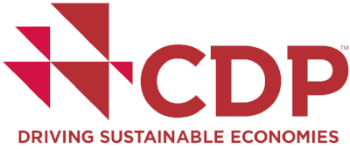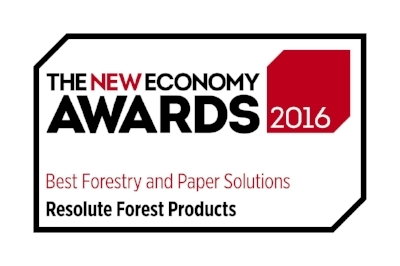Recently, we received a letter from the leadership of the Hachette Book Group expressing concerns over our legal dispute with Greenpeace in the wake of the group's misleading "report" on free speech. Resolute CEO Richard Garneau replied with this letter:
June 12, 2017
Mr. Arnaud Nourry
Chairman and Chief Executive Officer
Hachette Livre
58 Rue Jean Bleuze
92170 Vanves, France
Dear Mr. Nourry:
Thank you for your considerate overture and I appreciate the invitation to offer our thoughts on the longstanding, mutual commitment we each have to sustainable forestry. You are among our most valued customers and we take great pride in seeing how your company transforms our dedicated work into the lyrical beauty of the written word on the page.
I certainly share your chagrin that the various accusations being made by Greenpeace seem difficult to gauge, although it is obvious why Greenpeace should prefer it that way. One wonders whether they assume that the public will simply accept their claims without bothering to examine the details. By making their demands capricious, obscure, and ever-changing, the only yardstick becomes whatever Greenpeace insists.
Our position and track record by contrast are carefully detailed and wholly transparent, and I would encourage any stakeholder to read more about our sustainability performance here. Here are some recent examples of the broader recognition we have received for our environmental leadership.
• 2017 Environmental Leader of the Year Award, Environmental Leader Conference (North America)
• 2017 Mercure award for Sustainable Development (Canada)
• 2016/2017 Corporate Responsibility Award and Industry Sector Award, Peer Awards for Excellence (UK)
• 2017 Corporate LiveWire Innovation & Excellence Award, Excellence in Sustainable Forestry (North America)
We also take great pride in the many proactive steps we have taken that continue to enhance the sustainability of our operations. We derive 74 percent of our energy needs from renewable sources. Several years ago, we committed to reducing greenhouse gas emissions by 65 percent below the levels in 2000. We exceeded that commitment, and as of the end of 2016 achieved a best-in-class 73 percent reduction. We have been closely tracking and reporting on carbon, water and forestry through the Carbon Disclosure Project (CDP). Our scores are above average for the industry in carbon and water, and in 2016, we earned an “A-” in forestry, the highest ranking in the sector for all of North America. Last year, we also joined, as an inaugural member, the Carbon Pricing Leadership Coalition, a voluntary global partnership that seeks to address climate change by putting a market price on carbon.
We remain committed to maintaining our 100% forest management and chain of custody certifications to internationally recognized standards such as Sustainable Forestry Initiative® (SFI®), Programme for the Endorsement of Forest Certification (PEFC) and Forest Stewardship Council® (FSC®). This ensures all the fiber we process comes from responsible sources. The Canadian government, which owns and oversees the land where we operate, also plays a crucial role in ensuring the forests in which we operate are managed sustainably, and we have a strong record of compliance with both federal and provincial regulations.
Our dedication to responsible practices also extends to our many stakeholders, including the communities where we work and live, our conscientious employees, and of course our customers. By its own accounting, Greenpeace cheerfully claims it has caused more than $100 million in economic damage. They have also admitted to falsifying staged photos and video about our forest practices. When pressed to justify itself in court, Greenpeace conceded that its claims about Resolute “do not hew to strict literalisms or scientific precision” and instead are “non-verifiable statements of subjective opinion and at most…rhetorical hyperbole...not intended to be taken literally."
Just two weeks ago, Greenpeace issued another admission, saying they “are troubled by the recent job losses announced in the forest industry, which affect workers and their families.” “We do want to talk to the workers who know the conditions on the ground best,” they added, “[and] the men and women in the forest industry must be at the discussion table.” But those workers, their unions, community leaders, First Nations Chiefs and citizens by the thousands have been pleading with Greenpeace for years – and have been utterly ignored.
In one example among many, thousands of citizens in the town of Saint-Félicien, Quebec marched in the streets to protest the impact of Greenpeace’s conduct. “We extend a hand” for activists to dialogue, the town’s mayor, Gilles Potvin, said at the gathering. Like countless others in communities across the Boreal, they never heard from Greenpeace.
We are troubled that Greenpeace has devoted its vast resources to cajoling leading publishing houses, yet can’t muster the simple integrity of meeting with the ordinary people they know are being harmed.
You have my promise that we will continue to uphold the high standards that we have demonstrated in all the years we have enjoyed a relationship with Hachette. Thank you again for the opportunity to have a dialogue. I welcome the opportunity to meet with you personally in Paris to discuss these matters in greater detail.
Yours sincerely,
Richard Garneau
President and Chief Executive Officer
Resolute Forest Products












